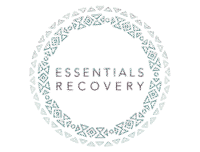Recovery from addiction is a deeply personal and often challenging journey. One of the most important qualities that support long-term sobriety is resilience. Resilience is the ability to adapt positively to adversity, stress, and difficult emotions. In recovery, building resilience can mean the difference between relapse and growth. This blog explores how resilience plays a vital role in overcoming challenges and offers practical strategies for strengthening it.
What Is Resilience?
Resilience is not about avoiding challenges or denying hardship. Instead, it’s the capacity to face difficulties head-on, learn from them, and continue moving forward. For individuals in recovery, resilience is what helps them manage stress, cope with cravings, and navigate life’s unpredictable nature without returning to substance use.
Resilience doesn’t always come naturally, especially after prolonged addiction, which can impair emotional regulation and decision-making. The good news is that resilience can be developed over time through intentional practices and support.
Common Challenges in Recovery
Recovery isn’t a straight line. People encounter various obstacles that test their commitment to sobriety. Understanding these challenges helps in preparing to face them with strength and purpose.
Some common challenges include:
- Cravings and triggers: Environmental cues or emotional stressors that remind someone of using can create intense urges.
- Mental health struggles: Co-occurring disorders like depression or anxiety often persist during recovery.
- Relationship issues: Rebuilding trust with family and friends may take time and patience.
- Social isolation: Leaving behind old social circles can result in loneliness, which can be a relapse risk.
- Life stressors: Financial strain, job loss, or housing instability can overwhelm even the most motivated individuals.
Resilience enables people to confront these issues without becoming discouraged or overwhelmed.
The Connection Between Resilience and Sobriety
Sobriety requires more than willpower. It demands a consistent effort to remain mentally and emotionally grounded despite difficulties. Resilient individuals are more likely to:
- Use healthy coping mechanisms during times of stress
- Seek support instead of isolating
- Learn from setbacks and use them as opportunities for growth
- Stay hopeful and motivated when progress feels slow
In short, resilience reinforces the foundation of recovery and prepares individuals to thrive in life, not just survive without substances.
Strategies to Build Resilience
Developing resilience is an ongoing process. Here are several ways individuals in recovery can strengthen their ability to bounce back from challenges:
Practice Self-Compassion
Being kind to oneself is crucial in recovery. Everyone makes mistakes, and self-judgment can lead to feelings of shame or failure. Self-compassion involves treating yourself with the same understanding and forgiveness you would offer a friend.
Instead of thinking, “I should be doing better,” a more resilient mindset is, “I’m doing my best, and it’s okay to struggle sometimes.”
Establish a Routine
A stable daily routine provides structure and predictability, which can help reduce anxiety and support emotional balance. Simple habits like waking up at the same time, exercising regularly, and preparing meals can foster a sense of control and stability.
When life feels chaotic, a routine can serve as an anchor that promotes consistency and resilience.
Strengthen Your Support System
Having people to lean on during difficult times is a key factor in building resilience. Support doesn’t have to be large in quantity; even a few dependable friends, family members, or mentors can make a difference.
Joining support groups, attending therapy, or finding a recovery sponsor are effective ways to build connections with others who understand the journey.
Focus on Emotional Regulation
Emotional regulation is the ability to manage strong feelings without being overwhelmed by them. In recovery, it’s important to recognize emotional patterns and develop tools for calming the nervous system.
Techniques like mindfulness, deep breathing, progressive muscle relaxation, and journaling can help you stay centered when emotions run high. Resilient individuals learn to observe their feelings without reacting impulsively.
Embrace a Growth Mindset
A growth mindset is the belief that abilities and intelligence can improve with effort and time. In recovery, a growth mindset encourages the idea that setbacks are not failures but learning experiences.
Instead of saying, “I’ll never be able to stay sober,” someone with a growth mindset might say, “I’m still learning how to handle challenges without using substances.”
This shift in perspective promotes resilience by focusing on progress rather than perfection.
Set Realistic Goals
Setting short- and long-term goals helps create purpose and motivation. These goals can be related to health, career, relationships, or personal growth. When goals are realistic and achievable, they foster a sense of accomplishment and build confidence.
Tracking progress and celebrating small victories reinforces the belief that change is possible and meaningful.
Develop Healthy Coping Skills
Building resilience involves learning how to deal with stress in constructive ways. Rather than turning to substances, individuals can explore alternative methods such as:
- Physical activity (walking, yoga, sports)
- Creative expression (art, music, writing)
- Spiritual practices (prayer, meditation)
- Nature walks or spending time outdoors
Having multiple coping tools available makes it easier to choose positive responses during hard times.
The Role of Therapy and Counseling
Working with a therapist or counselor is a powerful way to build resilience. Therapy provides a safe space to process emotions, explore patterns, and receive guidance tailored to your recovery journey.
Cognitive behavioral therapy (CBT), dialectical behavior therapy (DBT), and trauma-informed approaches are especially helpful in developing resilience. These modalities focus on changing thought patterns, regulating emotions, and addressing underlying causes of substance use.
Therapists can also assist in setting goals, identifying triggers, and building personalized strategies for long-term wellness.
Resilience and Relapse Prevention
Resilience plays a central role in relapse prevention. When someone in recovery faces a high-risk situation, such as a sudden loss or intense emotional pain, resilience allows them to pause, reflect, and choose a healthy response.
Instead of returning to substance use, a resilient person might:
- Call a supportive friend
- Attend a recovery meeting
- Use grounding techniques
- Reflect on their progress
Relapse doesn’t mean failure, but resilience increases the likelihood of avoiding it altogether or recovering quickly if it does occur.
Inspiring Examples of Resilience
Hearing stories of others who have overcome adversity can be a source of strength. Many people in long-term recovery speak of the personal growth, renewed relationships, and sense of purpose they’ve discovered through perseverance.
These individuals often share how resilience helped them weather storms that once seemed impossible to overcome—proving that lasting change is achievable.
Final Thoughts
Building resilience is not about becoming invulnerable—it’s about becoming adaptable, resourceful, and emotionally strong. In recovery, resilience supports every aspect of well-being, from managing stress to maintaining healthy relationships and staying committed to sobriety.
Whether you’re new to recovery or years into your journey, remember that resilience is a skill you can continue to grow. By embracing challenges with courage, surrounding yourself with support, and nurturing your mental and emotional health, you can rise above obstacles and build a fulfilling life in recovery.
Let your journey be a testament to your strength. You are capable of more than you know. Call us today at 855-509-1697.



